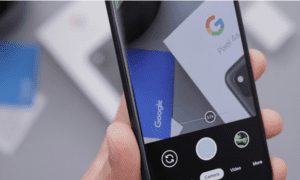The combination of predictability and flexibility inherent in personal loans is what draws most borrowers to select this option more so than other financing alternatives. Individuals can secure a personal loan so long as they have strong credit and reliable income, and in return, the bank or lender offers a lump sum that is paid back, plus interest, over one or more years. The monthly payment for a personal loan is fixed, as is the interest rate charged in most cases, giving borrowers control over their budget and total cost of the loan once it is approved. While personal loan funds also offer flexibility in what the loan proceeds may be used for, there are a handful of restrictions that borrowers should understand. Here’s what you can’t use a personal loan for, and why.
Illegal Activities
It should come as no surprise that taking out a personal loan to fund illegal activities is a common restriction among lenders. One prominent online lender states in its frequently asked questions sections, “Our loans cannot be used for… gambling, adult businesses, or other legal activities.” While not all loan provider state this explicitly in the loan agreement or terms, borrowers should be aware that getting caught using funds for anything that falls into a gray area of legality may cause a problem. The loan company has the right to recall a loan if that takes place, meaning the full balance becomes due immediately.
Education Expenses
Nearly all lenders restrict the use of personal loan dollars when it comes to education, specifically paying for tuition or other costs directly tied to attending a college or university. That may include room and board, books, technology or other student fees that would normally be paid out of pocket or through a student loan. Although some borrowers may not think using a personal loan for education expenses isn’t a big deal, doing so may break the law. Under the Truth and Lending Act, students have a special provision as it relates to private education loans which states a student borrower has 30 days to accept the terms, as well as three days after approval to cancel the loan completely. Most personal loans do not have the same explicit provision for student borrowers, making it illegal to use the funds for education.
Paying off a Loan Balance
Several personal loan providers also impose a restriction on borrowers regarding paying off a loan balance with the same lender. Let’s say you have a $1,200 balance on a personal loan with a lender, and you decide to take out a new personal loan for $5,000 with the same bank. Within the loan agreement, there is most likely a stipulation that states the loan proceeds cannot be used to refinance or pay off a current loan balance, meaning the borrower is stuck with two loans and two corresponding monthly payments.
Personal loans are a smart way to consolidate debt that carries a high interest rate, like credit cards, or for funding a major expense, like a wedding or a family vacation. However, before signing on the dotted line, make sure to understand what the loan can and cannot be used for, so you aren’t in a tricky position with your lender down the road.



































